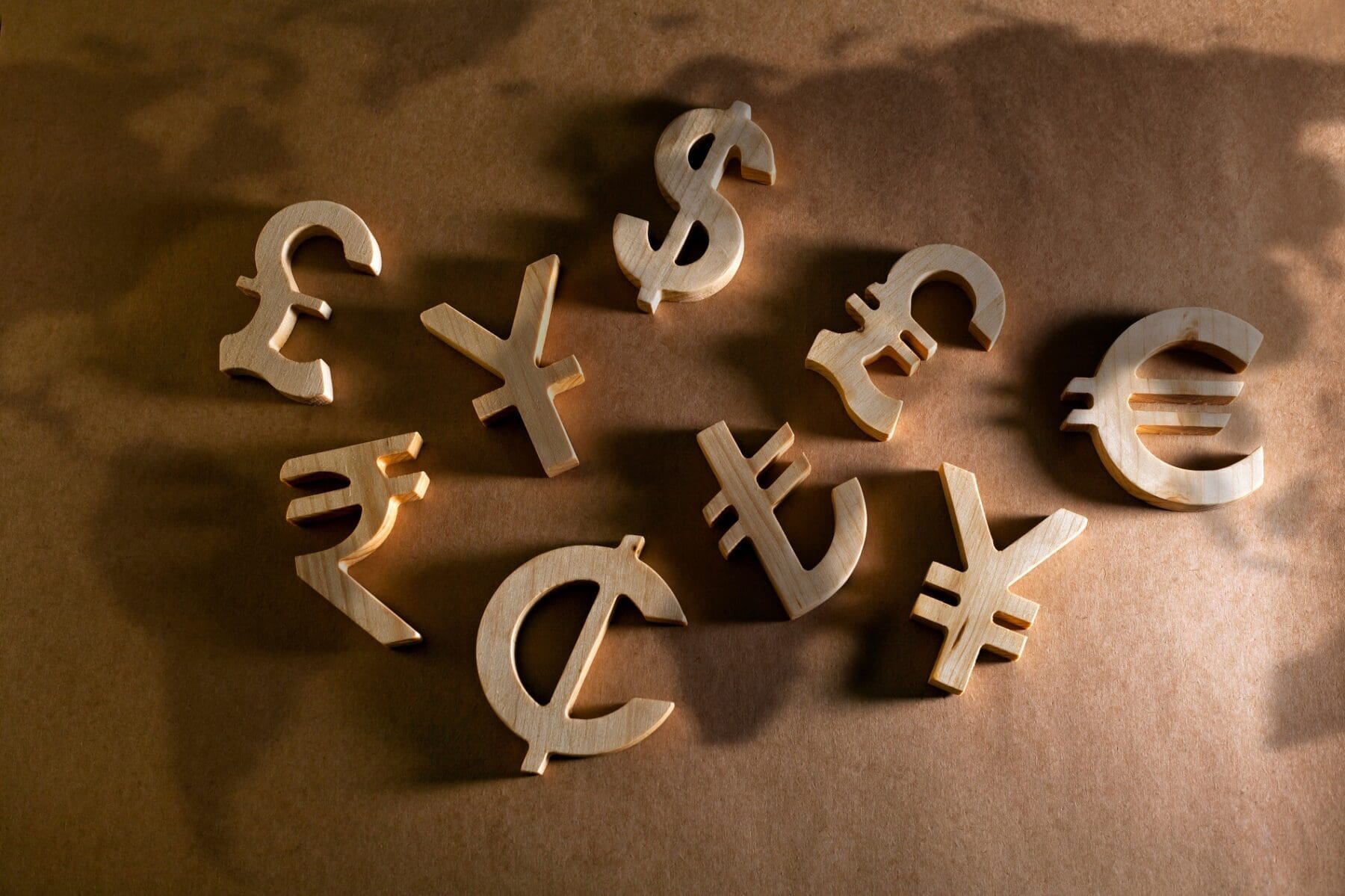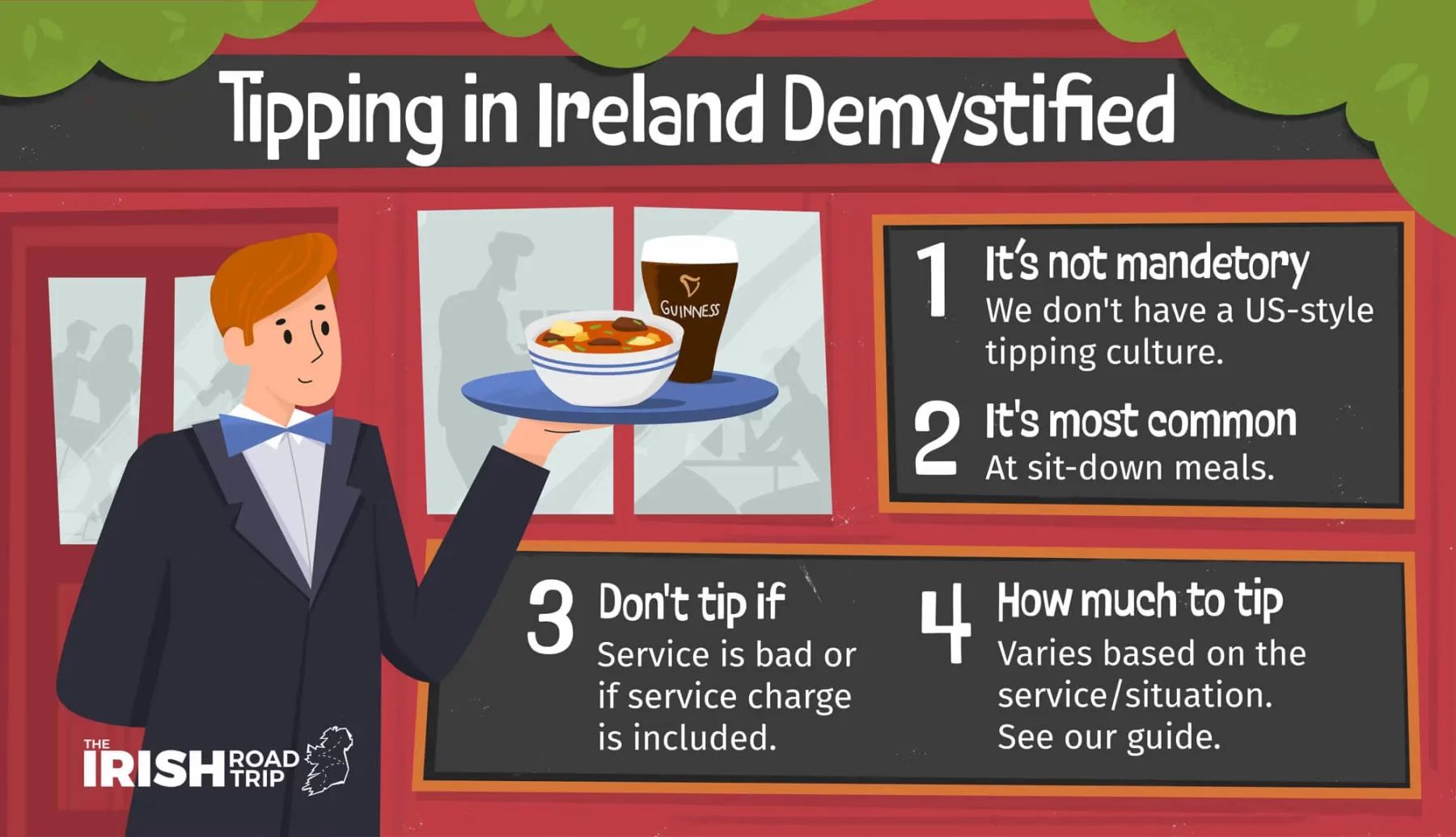Currency and Current Exchange Rates
In ireland, the currency is in EUROs. Unfortunately, the Euro has been a bit unstable at this time. As of April 25, 2025, the euro (EUR) is trading at approximately 1.04 US dol1ars (USD), meaning 1 euro equals about 1.14 dollars. This indicates that the euro is stronger than the dollar.
Getting daily conversion rates while in Ireland: Easily get current conversion rate and value by Googling “USD to EURO”, it will pull up rate plus a conversion value.
Using Charge Cards and bringing in USD Cash from USA
-
-
- Cash is king in anywhere you go, even Ireland. You may be able to negotiate more or avoid extra fees.
- USING CHARGE CARDS: Although, the bigger cities will likely accept the plastic version, smaller shops, towns and cafés may not accept cards.
- Do not bring in too much USD cash into Europe. You will not be able to convert USD currency into the country’s currency at any bank unless you have an account there. Our experience only “Fed Ex” offices may be able to do this, but they are usually not convenient and very expensive.
- As soon as you hit the airport, AVOID the Currency Exchange offices. Their commission and conversion rates are unbelievable. (Sometimes as much as 30% combined!)
- Bringing in cash into Ireland: This is perfectly fine, since bringing USD’s is not reasonable due to hassel of conversion. But if you wish, check with your local bank and see what type of conversion they are giving you and any associated fees. (Remember you will not need Euros until you get to the hotel, except for tipping. Most service agents, that you wish to tip, will gladly accept USDs.)
- There’s no limit to the amount of foreign currency you can bring into Ireland or the eurozone. However, you are going to have to declare your cash if you are planning to enter or leave the country with more than €10,000.
- Be aware that interest aplies immediately when you use your card for CASH ADVANCES at an ATM. Due to this, avoid this unless absolutely necessary. Bring a DEBIT CARD to not rely on Cash Advances. It is best to have a Debit Card with a CHIP technology, for this is the easiest and most convenient to use overseas.
- American Express is not friendly in Europe. Make sure you have a VISA or MasterCard as a backup. The larger institutions, such as hotels, usually do accept AMEX.
- Make sure you tell your bank about your travel plans, as they may put a block on your account if they see a transaction in another country.
- Check your Merchant Card to see what their Foreign Transaction Fee is. (Compare this cost against using Cash from ATMs instead of using your Charge Card).TIP: If you travel abroad alot, you may want to consider getting a card that is more forgiving on these fees. Here is CLICK a recent article that recommends cards with no to minimal Foreign Transaction Fees.
-
When you are paying with a credit card here in Ireland, it will ask you whether you wish to pay in Euro or USD. CHOOSE EURO! Here is why!
-
-
- Better Exchange Rates via Your Bank
When you select EUR, your bank/card issuer handles the currency conversion, typically at or near the interbank exchange rate, which is far better than what merchants or third-party processors use. Most travel-focused credit cards offer 0% foreign transaction fees—if yours does, you save even more. - Avoid “Dynamic Currency Conversion” (DCC)
If you choose USD, the merchant or processor sets the exchange rate, often with a markup of 3–7%, sometimes hidden. This practice is known as Dynamic Currency Conversion, and it’s generally a bad deal. - USD Instability Is Already Baked Into the Bank Rate
When paying in EUR, your bank will convert at the current FX rate (accounting for USD fluctuations) in real time. This is safer and less exploitable than the static rates used in point-of-sale conversions.
- Better Exchange Rates via Your Bank
-
-
-
THE BEST WAY TO GET LOCAL CURRENCY!
We recommend using a DEBIT Card to pull local currency cash out of the ATMs. Furthermore, we suggest using ATMs that are connected (or associated to a bank). They usually do not charge a commission, and their conversion rates follow current banking quotes, and thus, more forgiving.
HOT TIP: Check to see if your bank is part of the Global ATM Alliances. These alliances are formed by banks worldwide to reduce fees for their customers using partner ATMs abroad, including Ireland. One of the most popular ones are Bank of America and Barclay Bank. Read more here. CLICK.
Tips to Avoid ATM Fees:
Check with Your Bank: Confirm if they have any international partnerships or offer reimbursements.
Prepaid Travel Cards: Use services like Revolut, Wise, or N26 for withdrawals at reduced fees.
Choose the Local Currency Option: Always withdraw money in the local currency to avoid dynamic currency conversion (DCC) fees.
Look for Partner ATMs: Use ATMs of partner banks listed above to minimize costs.
Speaking of banks, the following links take you to a directory of the top banks in Ireland.
Another Irish ATM Tip: Most Irish ATMs only accept cards with 4-digit PINs. Irish cards typically have chips and PINs, as do ones issued in the UK. If you’re unable to use your chip-less debit/credit card at an ATM, merchants should still likely accept it. You’ll just have to sign a receipt instead of entering your PIN, or use the contactless option.
Here is another fantastic (although edited a year ago) “Best palces to exchange currency in Dublin”. READ IT
TIPPING PRACTICES IN IRELAND
Tipping in Ireland is generally more modest than in the United States and is not mandatory, but it is appreciated for good service.
Here are some key tips:
-
-
- Restaurants: If service is not included (check your bill), a tip of 10-15% is customary for good service. For casual dining or counter service, tipping is not expected, but leaving some change is appreciated.
- Pubs: Tipping is not common in pubs, even if you order food. However, if the service is exceptional or you’re part of a large group, you can round up the bill or leave a few euros.
- Taxis: Rounding up to the nearest euro or adding 10% for excellent service is polite, but not obligatory.
- Hotels: Leave $1-2 per bag for porters and €1-2 per night for housekeeping if the service was good.
- Tour Guides: A tip of $10-20 per person for multi-day tours is customary, depending on the service and group size.
- Hairdressers and Salons: Tipping 10% is common for good service.
-
When in doubt, use discretion and reward excellent service, but don’t feel obligated to over-tip. It’s always better to check local customs if unsure! Tipping is generally done in local currency. When desperate, you may use USDs, since most can exchange this currency with the local bank they are serviced by. For larger tips (our guide and coach driver), we many be able to offer a Venmo or Paypal account.


